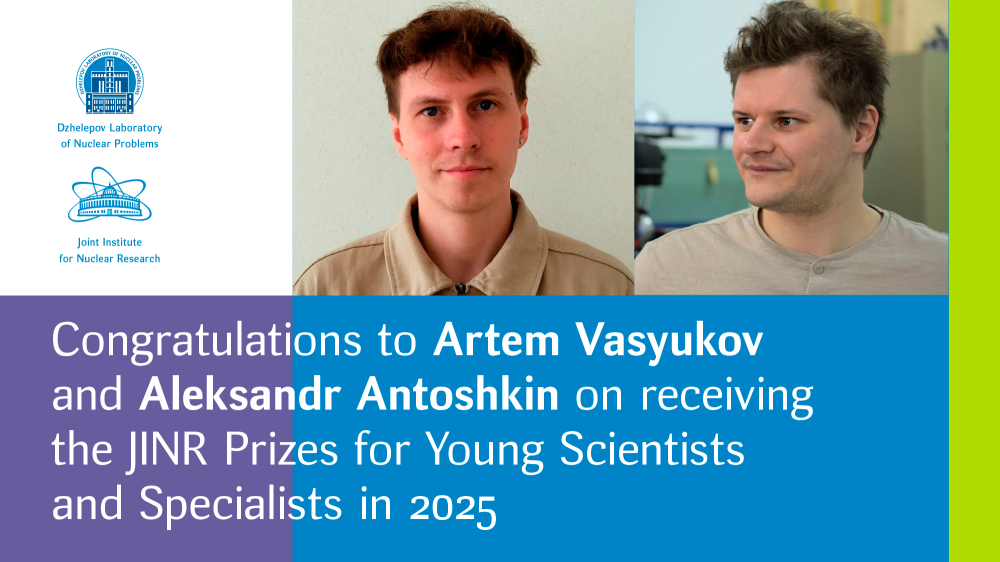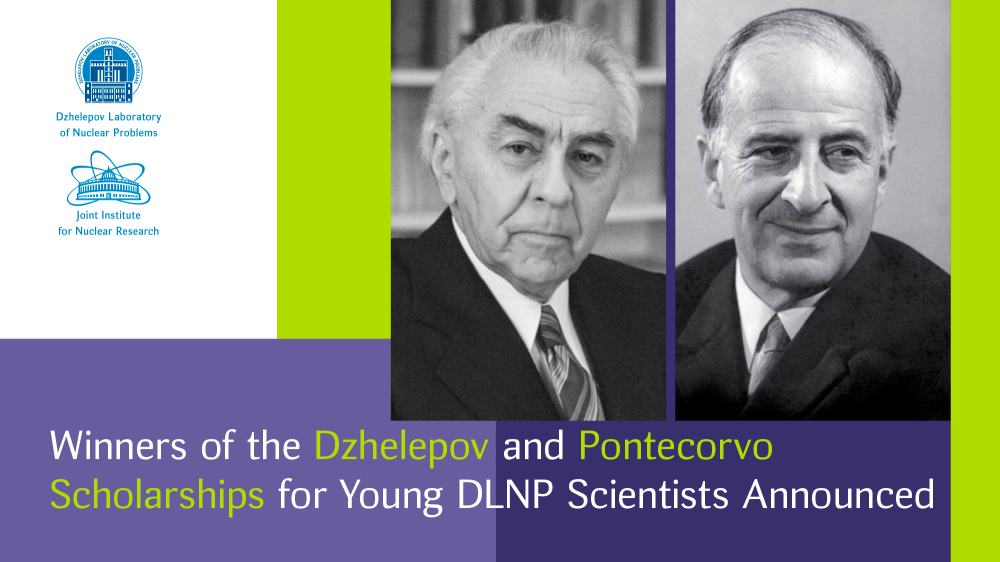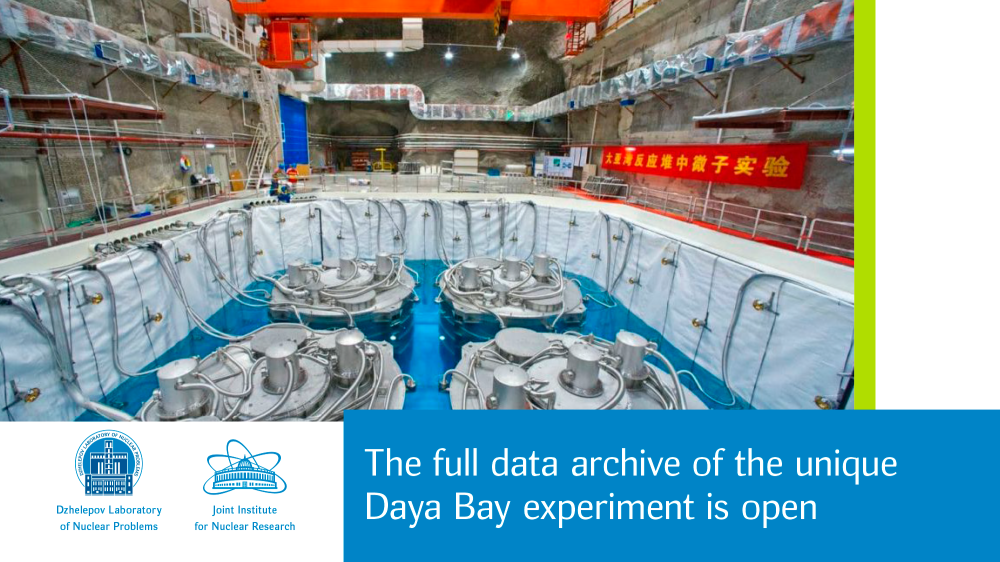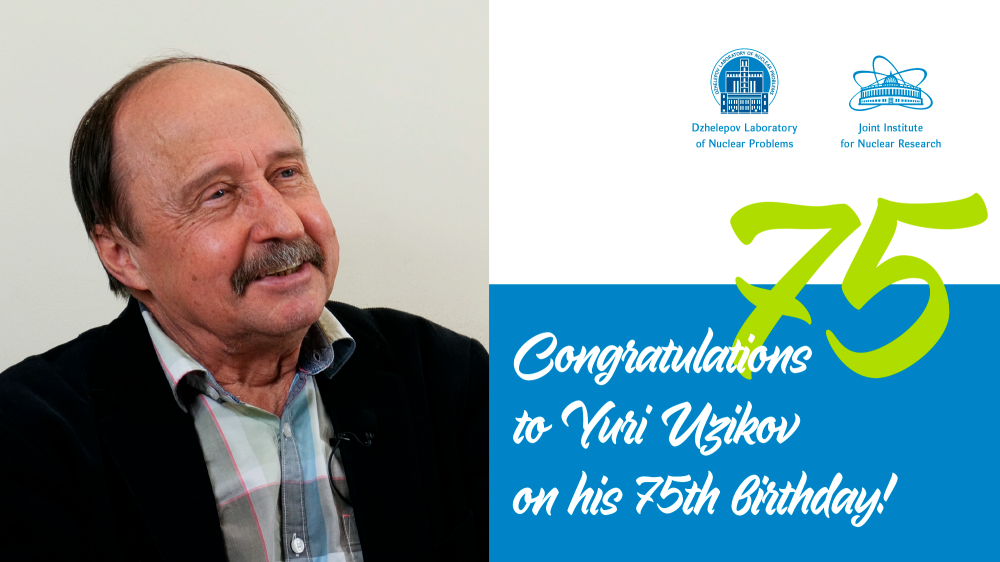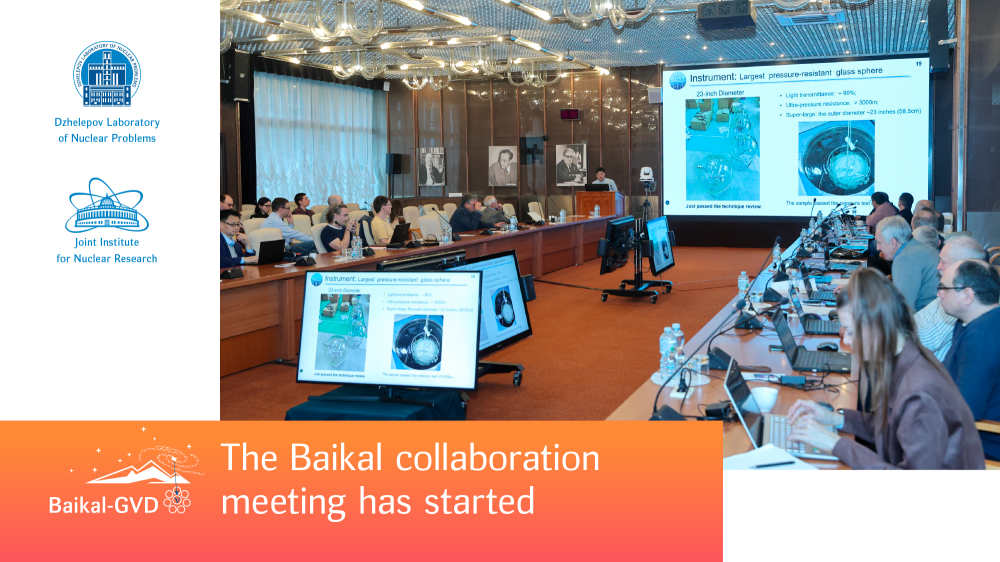Alexander Grigorievich Olshevskiy is 65!
A. G. Olshevskiy started working at DLNP (JINR) in 1979 immediately after graduating from the Faculty of Physics of Moscow State University where he majored in physics.
From 1979 till 1982, he was a trainee researcher at DLNP.
From 1982 till 1987, he worked as an engineer there.
From 1987 till 1991, he was a researcher, and in 1991—1995, a senior researcher.
In 1995, A. G. Olshevskiy became a leading researcher.
Over the period of 2003—2013, he acted as DLNP Director.
Since 2013, he has been working as Head of the Experimental Department of Elementary Particle Physics.
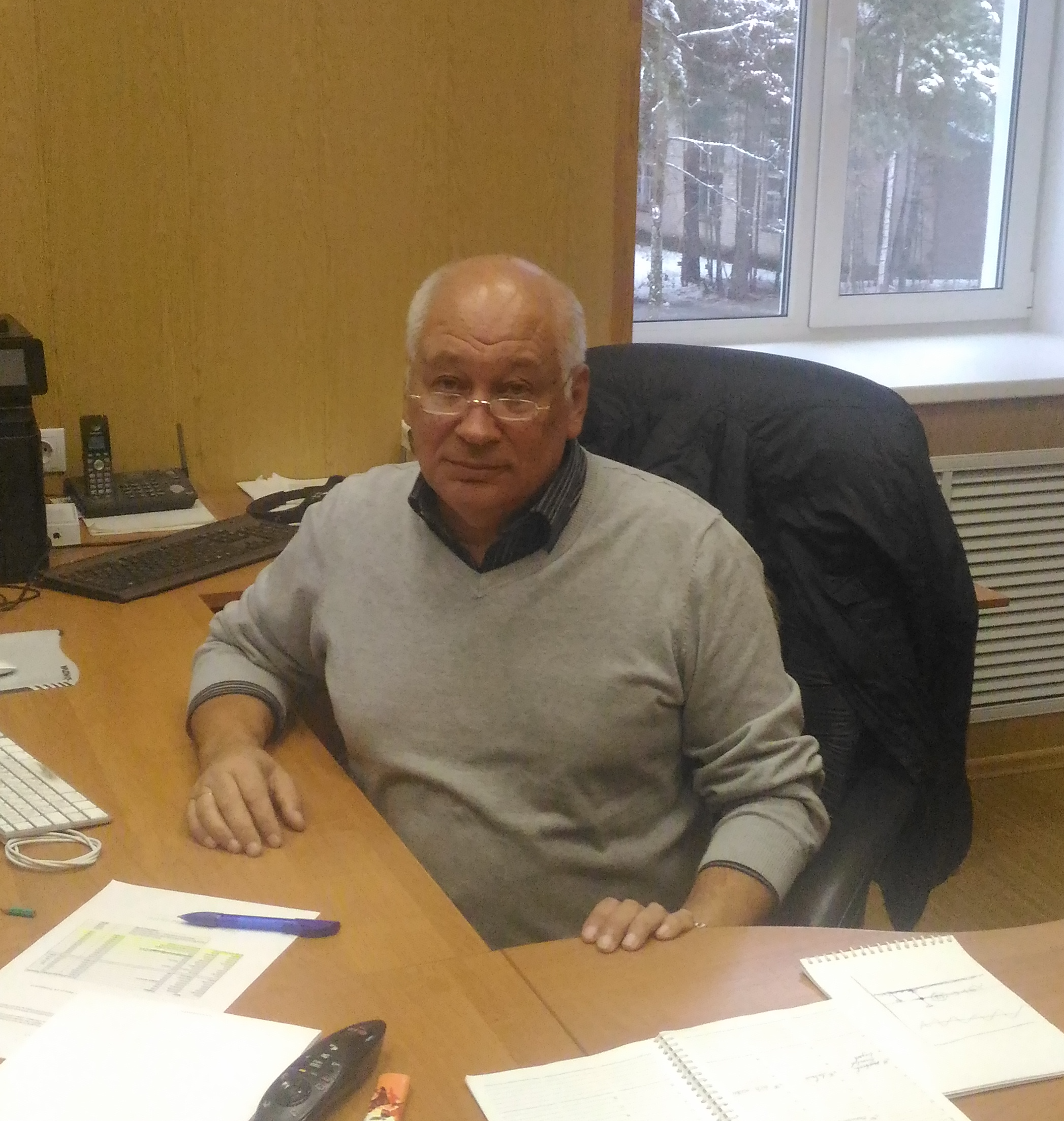
A. G. Olshevskiy began his career studying rare decays at the DLNP synchrocyclotron. In 1980, he became a member and later the leader of the research group combining scientists from JINR and IHEP in the SIGMA-AYAKS experiment where charged pion polarizability was measured for the first time. The idea of this experiment was formulated by A. G. Olshevskiy together with his JINR colleagues in 1979. In 1988, after defending the dissertation “Measuring electrical and magnetic polarizability of a charged pion in the reaction of low-transfer radiation scattering off nuclei”, he became a Candidate of Physics and Mathematics. Afterwards, refinement of this measurement was proposed and implemented by the Dubna group in the COMPASS experiment at CERN.
From 1991 till 2003, A. G. Olshevskiy headed the team of JINR physicists involved into the large-scale DELPHI experiment on the Electron-Positron Collider at CERN. He contributed a lot to equipment preparation, measurement performance, data processing and interpretation. Based on this experience, A. G. Olshevskiy defended his doctoral dissertation “Verification of the standard electroweak interaction theory in the DELPHI experiment using the LEP at CERN” in 2002. In 2000—2003, he guided a JINR group at CERN and coordinated JINR activities at this European Physical Centre.
In 2001, A. G. Olshevskiy initiated and supported the involvement of JINR physicists in the OPERA neutrino experiment where under his guidance a valuable contribution was made to the elaboration of the scintillation detector system.
Following his idea, JINR physicists have been engaged in the international Daya Bay experiment since 2005. They significantly contributed to the facility construction and the findings of fundamental importance—the measurement of the neutrino mixing angle, which reveals new possibilities of neutrino experiments using accelerators and reactors. For the outstanding contribution to this achievement, A. G. Olshevskiy was awarded the Markov Prize of RAS in 2013.
A. G. Olshevskiy largely focuses on methodology work. The projects of the SIGMA-AYAKS trigger system, additional DELPHI muon chamber, OPERA scintillation system, COMPASS calorimeter and others were implemented with his involvement and under his guidance. At present, he works on elaborating and implementing of different photon detectors in particle physics experiments.
For over many years, A. G. Olshevskiy is a member of the Science and Technology Council at DLNP (JINR) and SINP (MSU), a member of the Dissertation Council, a member of the Editorial Board of the journal “Particles and Nuclei, Letters” and an Honorary Doctor of the Science and Technology Complex “Monokristall”. He was steadily engaged in organizing international conferences, meetings and schools, including the Pontecorvo Neutrino Physics School and the European School of High-Energy Physics and many more.
A. G. Olshevskiy has a wide educational experience. He is a Deputy Head of the Elementary Particle Physics Department at the MSU Faculty of Physics, and gives a series of lectures “Contemporary High-Energy Physics”. He supervised 5 candidate dissertations. In 2011, he was granted the academic title of Professor.
In 1996, A. G. Olshevskiy was awarded the Medal of the Order “For Merit to the Fatherland” II class; in 2006, the Medal of the Order “For Merit to the Fatherland” I class. He also received medals and honorable distinctions of the JINR Member States. He is one of the leading Russian specialists in high-energy physics and elementary particle physics. His scientific interests are Z- and W-boson parameter studies, verification of the standard theory of electroweak interactions and search for phenomena beyond it, research in quantum chromodynamics and neutrino physics. While involved in different experiments, several teams under his leadership were formed, which successfully solve methodological and scientific problems.
Happy birthday, dear Alexander Grigorievich! We heartily wish you good health and further magnificent scientific achievements!


